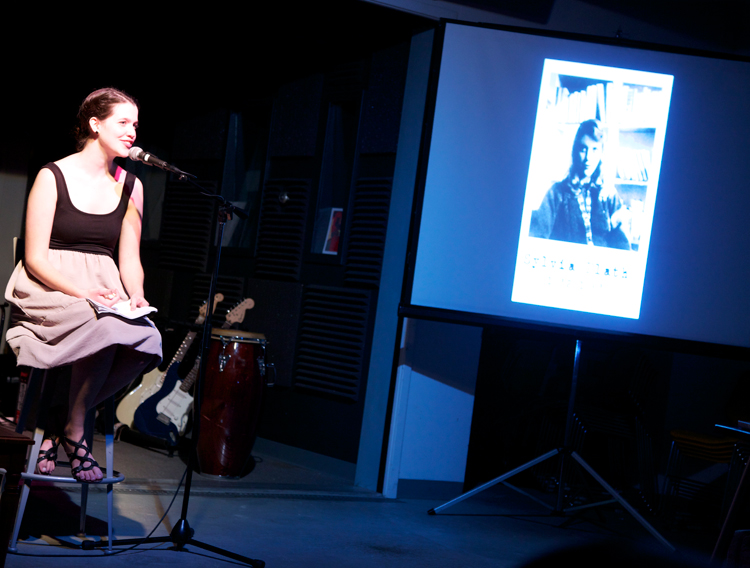Capping the College Experience

For many students, successful completion of a senior capstone is as much a right of passage as walking across the stage and receiving a diploma. These culminating projects range from papers and presentations to performances to hands-on research, but they all share a common goal. “The point is to utilize all the different tools that you’ve collected throughout your college career,” said 2012 graduate Natalie Zdan.
The projects require students to access their entire skill-base, but they are usually allowed almost complete freedom when choosing a topic. “The capstone gives students an opportunity to really focus on something that they maybe haven’t had an opportunity to focus on before,” explained English professor Dr. Heidi Snow, “or to go in greater depth into something they’ve been introduced to during their four years.”
Zdan, a global perspectives major, used her capstone to pursue her interest in intercultural communication—specifically, the extent to which English has become the common language for business and scientific research. She examined her topic in terms of culture and language as well as business and science.
Steve Bailey, an environmental studies major, went another route. He decided to tackle something completely new, evaluating whether it would be feasible to run Eliestoun on solar energy, if it were to be refurbished. “I wanted to do something with sustainable energy sources,” Bailey explained. He researched hydro, wind, and solar energy, knowing little about any of the three beforehand. “I had to teach myself and learn a ton in a very short amount of time,” he said, “but it was a really cool road of self-discovery.”
“There are a lot of lessons about working independently, about meeting deadlines, about intellectual integrity, and just finding joy in grappling with an idea and coming up with something new and original,” commented Snow. “Students see something about themselves as scholars that just really clicks, and they take off. It’s nice to have that be the way they’re ending their college experience—with a real sense of satisfaction with this pretty substantial product.”
Other capstone projects completed this semester included art exhibits, violin concerts, and creating an artificial intelligence scheduling program, as well as papers and presentations on Sylvia Plath, the cultural history of tea, mathematician Emmy Noether’s life and work, the political development of Japan, parental involvement in education, and community development in Nepal, to list a few.